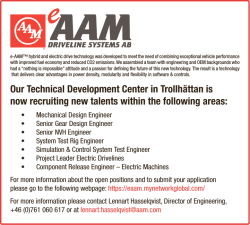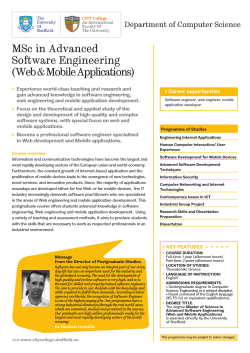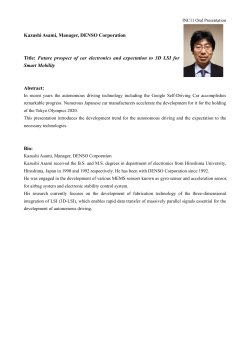
Space Servicing Capabilities Project - WVU
We s t V i rg i n i a Ro b o t i c Te c h n o l o g y C e n t e r West Virginia University Dr. Thomas H. Evans WVRTC Research Program Manager West Virginia University Thomas.Evans@mail.wvu.edu Jason Battin Engineer Dr. Andres Velasquez Escandon Computer Vision Scientist Dr. Giacomo Marani Research Engineer Michael Campbell Systems Engineer Patrick Lewis Systems Engineer Capt. Ken A. Olson Engineering Technician Current research at WVRTC spans a wide variety of technical applications, from autonomous vision systems for robotic manipulation in various environments to nano sensors for fuel leak detection. WVRTC has developed advanced robot control systems that work effectively with computer vision and sensor fusion methodologies, providing synergistic control for autonomous manipulation. WVRTC collaborates with West Virginia University’s College of Engineering and Mineral Resources to develop new technologies for real world applications. WVRTC serves to support NASA Goddard Space Flight Center for research and development of space servicing technologies, focusing on the autonomous capture of on-orbit satellites for refueling and repair operations. WVRTC – Test Facility Robot Manipulators & Test Platforms • (2) Motoman SIA50D with High Speed Control • Motoman SIA10D with High Speed Control • Mikrolar R3000 Rotopod Motion Based Platform • Shuttle Remote Manipulator System Flight Arm • Solar Simulator Machine Vision Solutions for AR&D Autonomous Rendezvous and Capture & Advanced Sensor Systems • Machine vision algorithm solutions to provide position estimation of client spacecraft relative to a servicer spacecraft during approach and capture • Capable of maintaining estimation all the way to capture, allowing the possibility to stop grapple at last minute if necessary • Algorithms provide flexibility for tracking of general features, such as circles, lines, arcs, and points West Virginia University is a flagship land-grant, doctoral degree granting research university located in Morgantown, WV. WVU provides high quality programs of instruction at the undergraduate, graduate, and professional levels. • Developing advanced sensor systems for operation in harsh space environment conditions • Sensors provide refined assistive information and data to teleoperation, semi-autonomous, and autonomous tasks for space servicing and explorations objectives WVU has received $152 million annually in sponsored contracts and research grants and has an operational budget which is over $875 million annually. The WVU Benjamin M. Statler College of Engineering and Mineral Resources is nationally recognized for its educational and research programs, technical innovation, creation of knowledge, and ability to foster educational excellence, while continuing its commitment to the economic growth of the state and nation.
© Copyright 2025





















